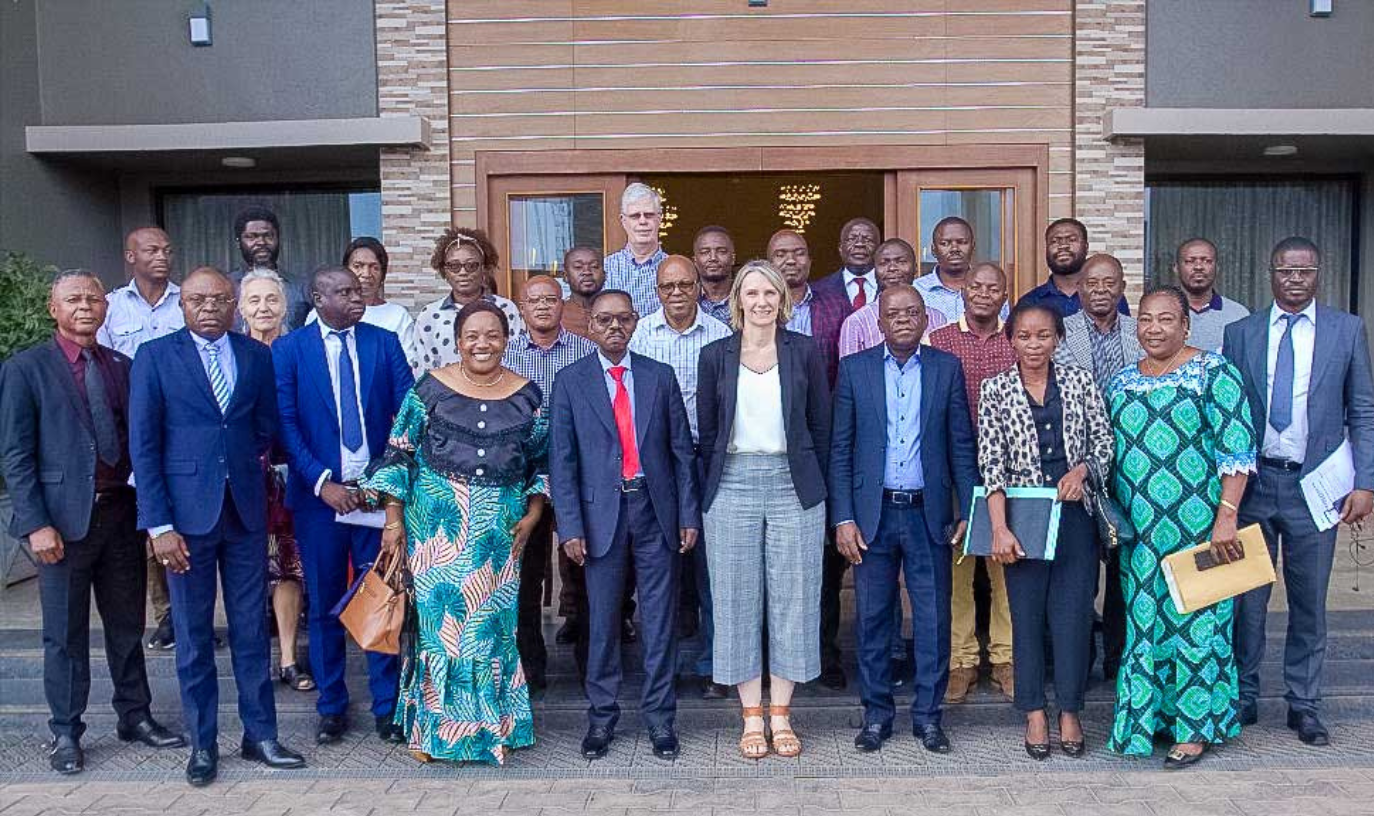Cooperatives being charged more than $10,500 USD in informal taxes and fees
December 6, 2023 – Kolwezi/Ottawa
IMPACT is launching a new project today to address everyday corruption in the form of illegal and informal payments in Democratic Republic of Congo’s artisanal cobalt mining sector.
The Challenging Corruption project will make informal payments in the supply chain more visible and support civil society to monitor corruption more effectively in the sector. IMPACT is implementing the project in partnership with Extractive Industries Transparency Initiative in DRC (EITI-DRC), the technology company Minespider, and international non-profit organization Solidaridad.
The project’s launch today in Kolwezi, Lualaba Province, brought together the mining governance authorities, the technical services of the mining administration, supply chain actors, civil society, and private sector representatives. Stakeholders discussed how the project will leverage ongoing efforts to support transparency—and ultimately how it can contribute to create an enabling environment for responsible sourcing of artisanal cobalt.
“IMPACT has found that actors across the supply chain, as well as state agents, lack awareness about which taxes or fees are legal or informal. These informal payments are resulting in corruption along the supply chain everyday. When actors have a map of legal payments—it becomes a powerful tool for communities to fight against corruption,” said Joanne Lebert, IMPACT’s Executive Director.
The Challenging Corruption project builds on IMPACT’s work to map all the payments, fees, and taxes applicable to artisanal cobalt supply chains and their legal basis. The multi-stakeholder process to map the legal payments found that supply chain actors are sometimes paying thousands of dollars in informal taxes. At the extraction level, the number of payments was reduced from eight to four. This would allow cooperatives to avoid informal payments which have no legal basis, such as $10,500 USD charged by SAEMAPE for technical advice on installations in the mine site.
The five technical notes which have mapped the legal taxes and fees for the artisanal cobalt supply chain were published in November 2023. They will be widely disseminated to supply chain actors and state agents across Lualaba and Haut Katanga provinces.
Importantly, the project will allow for comprehensive and robust data analysis for the artisanal cobalt sector to understand corruption at the individual and community levels. By compiling different data streams such as traceability, fiscal payments, revenue transparency, and socioeconomic indicators—red flags pointing to corruption will become visible. Local civil society and anti-corruption advocates will receive training and guidance on how to collect data as well as interpret, understand, learn from, and leverage analytics.
As a result of this work, civil society, anti-corruption advocates, and artisanal mining communities will be better able to monitor corruption and leverage data to bring about change.
“EITI was formed from the observation that in countries with natural resources, populations don’t see the benefits of this wealth. We want the benefits of our country’s mines to go to the Congolese people. Local actors in the artisanal cobalt sector will have the tools to identify corruption within their communities by relying on EITI-DRC’s approaches to revenue transparency and the creation of the mechanism to analyze all the data,” said Jean-Jacques Kayembe, National Coordinator of EITI-DRC.
“Minespider is dedicated to empowering stakeholders with transparent, traceable data in the Challenging Corruption project, enabling the creation of product passports that incorporate both responsible sourcing data and financial data—a powerful tool in the global effort for a corruption-free artisanal cobalt mining sector,” said Nathan Williams, Founder and CEO of Minespider.
“There’s great potential in providing transparency around legitimate payments in the cobalt supply chain, giving communities the knowledge, and the power, to resist corruption. The tools and learnings developed in this project will offer many stakeholders, especially the miners themselves, the incentive to build more formal, transparent trade relationships that can be the driver for better livelihoods,” said Jennifer Horning, Head of Corporate Engagement and Partnerships at Solidaridad North America.
The Challenging Corruption project is one of the winners of the Powering a Just Energy Transition Green Minerals Challenge (JET Minerals Challenge). The JET Minerals Challenge is run by the United States Agency for International Development (USAID).
Read more about the Challenging Corruption project here.
-30-
IMPACT transforms how natural resources are managed in areas where security and human rights are at risk. We investigate and develop approaches for natural resources to improve security, development, and equality. We are an independent non-profit, collaborating with local partners for lasting change.
EITI-DRC is committed to strengthening transparency and accountability of the management of DRC’s extractive sector by implementing the EITI Global Standard. This process is supported by a National Committee composed of an Executive Committee, represented by the Government, the private sector, and civil society, as well as a Technical Secretariat. The executive body of the National Committee is led by a National Coordinator.
Minespider is a technology company offering a blockchain-based platform for tracking mineral supply chain data and creating more sustainable and transparent mineral supply chains. Minespider developed digital Product Passports, which are digital IDs of material that easily communicate key data across the supply chain.
Solidaridad is an international civil society organization with over 50 years of experience in developing solutions to make communities more resilient — from its early roots working with marginalized communities in Latin America to current work fostering more sustainable supply chains. Solidaridad currently operates in over 40 countries, on five continents, through seven independently supervised regional offices.

